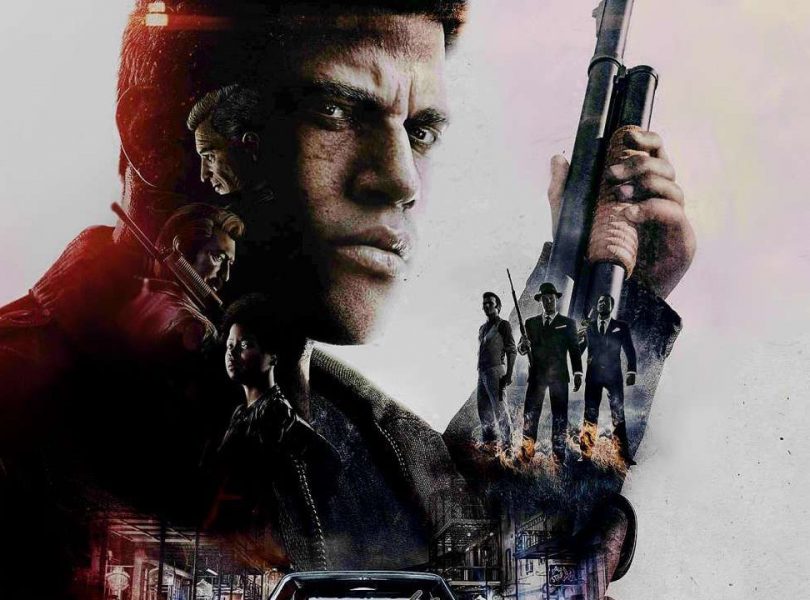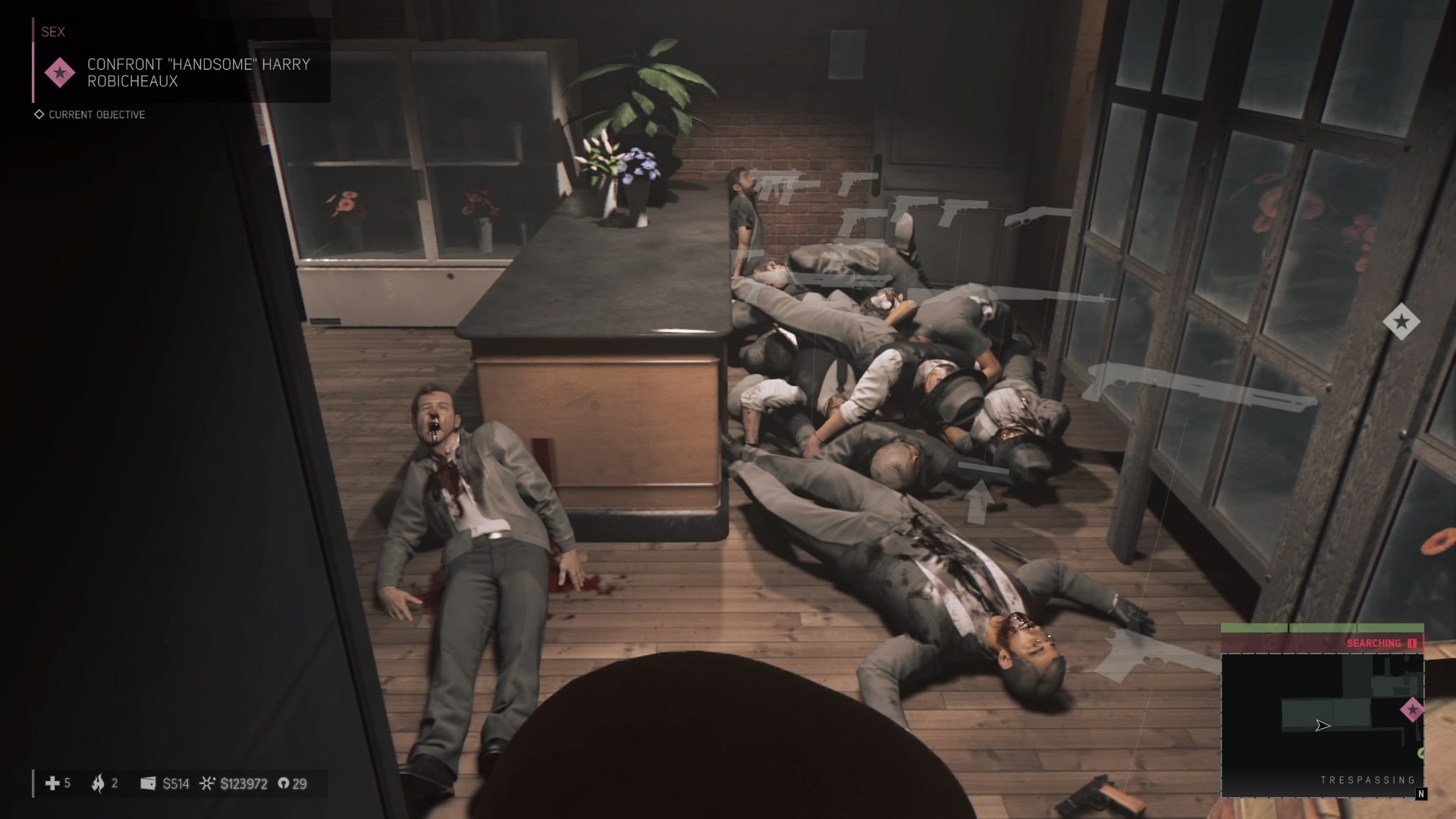Vietnam Meets Louisiana
There are two things I thoroughly enjoy: open-world games and (almost) free games. The former is a tired genre nowadays, but my fractured brain grooves to the repetitive tasks and completionist-level collect-a-thons present in the games. The latter, I think, is self-evident. When Sony included Mafia III in its PlayStation Plus slate for this month, both boxes were checked off for me. I merrily added the game to my burgeoning PS4 library and set to install it, knocking off another game I didn’t jump on at launch but wanted to try.
From the moment I started the install to the end of the game, my experience was mixed. I was simultaneously pulled in by the excellent story and frustrated by most everything else. The game was enjoyable in spurts but full of the kinds of pitfalls that wear even open-world enthusiasts like me.
(Note: it’s not technically part of the game, but after “installing” the game, I started the game and then had to then wait NINE FUCKING HOURS for it to actually install! That kind of shit can go to hell!)
Once in, I was wowed by the setting and protagonist. Mafia III is set in New Bordeaux, a fictional take on New Orleans, and the year is 1968. You play as Lincoln Clay, a soldier who returns from Vietnam and is thrown into a mission of revenge after his family is killed and he’s left for dead. Clay himself is not a dynamic character, usually striking one note and sticking with it throughout, but both the setting and the people around him are excellent and flesh him out well.
Since this is 1968, all of the social ills associated with that era are present. In addition to all the anti-Vietnam commentary, there is post-McCarthy-era Communist paranoia and tons of civil rights talk. The game’s framing device – split between documentary-style interviews and congressional testimony after the fact – gives added context to the game’s events. Everything is brilliantly acted and gives real weight to the events of the game.
The game becomes weightier as you go along. Since this is a mob-inspired game, it’s natural that you would recruit lieutenants. There are three here and they’re more complex than their stereotypes may suggest. There’s Vito, an Italian stereotype straight out of The Godfather. You also have Burke, who assumes the stereotypical Irish drunk role. In a change of pace, the third lieutenant, Cassandra, is Haitian. I haven’t played enough games to know if there’s a Haitian stereotype; Grand Theft Auto: Vice City didn’t do a great job of portraying them. But she, like Vito and Burke, are very well acted. They also demand respect, and when it comes time to divvy up rackets and districts between them, they lean on you hard. Keep them happy and they’ll stay loyal and offer perks. Favor one over another, and they’ll aim for your throat. How you balance their needs determines how successful you are at keeping the alliance together.
The city of New Bordeaux adds lots of atmosphere, most of it racist. Mixed among the period-specific cars and attire are plenty of “No Colored Allowed” signs, open hostility from some folks, and copious sprinkling of the n-word. Oh, and actual Klansmen. Can’t forget them. Even your lieutenants, especially Burke, have their bigoted ways. It’s spot-on with the sentiments of many Southerners of the time, but it gets a bit uncomfortable sometimes.
Fortunately, other aspects of that era are much more pleasant. The period-specific soundtrack is awesome, featuring songs from artists like Elvis Presley, The Beach Boys, Johnny Cash, CCR, and the recently-departed Aretha Franklin. The songs don’t just play when you’re driving around; some key cutscenes have songs that accentuate the feel of the drama onscreen. I personally love when games like this nail the soundtrack, and this one does. No matter how pissed I get when I come across some racist Southerners, hopping in my car and being greeted with Sam Cooke’s “Chain Gang” will crack a smile on my face.
Unfortunately, most everything else begins to fall apart with overly-used open-world-style tropes, weird glitches, and dumb AI. New Bordeaux is huge and varied, with the opulent French Ward contrasting wildly with the run-down Ponte Verde and the backwoods of the Bayou. But having to traverse the same ground repeatedly to do missions renders the landscape pointless. After a while, you will have seen the same terrain so much that it’s almost invisible. It’s made worse by the fact that there is no fast travel in Mafia III. Having to drive everywhere makes the tedium even more difficult to endure.
Driving isn’t terrible, but it’s close. The cars handle like they typically do in open-world games, but with a 60s flair. The standard cars all roll wildly, handle very loosely and squeal their tires at all times. I’m not expecting Forza levels of control here, but those squeals and controller rumbles (which you can mercifully turn off) will drive you nuts.
If they don’t, the traffic will. I’m convinced that New Bordeaux is filled with the zombie version of South Florida motorists. NPC drivers fling their cars around with no regard to reason. During a mission where I had to deliver a semi to a racket, I was forced to stop at a red light behind other cars. Just because my cab was not kissing the bumper of the car ahead, another car decided it wanted to occupy that tiny space between us, going as far as to ram the cab and trailer repeatedly! They don’t fully mimic South Florida motorists because they are otherwise dead, not even responding when you collide with them. They just sit behind their wheel, looking for a millimeter of space they can attempt to ram their vehicle into.
That level of driver AI is Mensa-like compared to the AI of enemy combatants. As usual in open-world games, the player helps Clay score body counts in the thousands. During combat, enemies have different levels of alertness from being aggressive, to actively searching for you, to being in full combat. When searching, they will all scour the area for you, and they do so blindly, heading in the direction of your last known location. They do this one at a time, mainly from one direction, and do not take any precautions even if they see the dead body of a cohort. The game has a cover system, so I simply hid behind a corner after I triggered Searching mode, stealth killed the dumb henchman who peeked in, tossed his body to the side, and waited for the next lemming. I was able to clear out heavily-armed dens like this, leaving a body pile that would make John Wick envious.
Sometimes, a couple of the bodies in the pile would twitch like Geddan James Bond. Glitches like that are not uncommon in open-world games, which try to simulate dozens of people and vehicles in a believable way. But oftentimes, the glitches got in the way of the gameplay. On the aforementioned semi run, just as I was entering the target location, a civilian who was walking towards my semi suddenly leaped onto the floor like she was avoiding gunfire. She then ran towards the nearest policeman to report me for doing a hit-and-run. A similar thing happened while driving normally and passing a truck that was quivering like Jell-O during an earthquake. The first incident glitched the mission, forcing me to repeat it. The second resulted in a three-minute police chase that I barely escaped from.
(Note: My podcast mate Lou tells me that the Xbox One version of the game wasn’t as glitched. I reserve judgment on that version. I can only say that the PS4 version spazzes more than Porky Pig with hiccups.)
The police here are especially dumb. During normal gameplay, any officer within eyesight of you – which is about three feet – directs their gaze towards you. This is supposedly meant to signal that they’ll react to anything you do wrong; some dialogue during one of the first missions hints as much. But you can do almost anything short of murdering someone in front of them and mostly not incur their wrath. I literally threaded myself between a police cruiser and a car while under a red light, clipping the other car in the process, and didn’t get a rise out of the officer. When they do respond, they swing between ruthless and inept. I had about a few chases end abruptly, with me in their sight, for no reason. Other times, the only way I could shake them was to bail from my vehicle and jump into the river. Seeing as the city is an analogue for New Orleans, there are alligators in the rivers and bayous. Jumping in there to avoid cops is not a good idea.
Fortunately, there are some perks that can help in maddening situations like that. The perks are given to you when you’ve earned favor with your lieutenants. For example, Burke gives you the ability to call off the police for up to 2 minutes. Other perks include a mobile arms shop that you can call to rearm, a consigliere that will pick up any money you have on you for safe keeping, and a squad of hit men that you can call on to help you take down a racket. They can be very useful, though some require a marker that you earn when you complete certain missions.
Taken together, all of the faults I experienced with Mafia III honestly didn’t temper my enjoyment too much. Yes, it was frustrating when I had to go clear across the map to pick up a shipment, only for a glitch or a random hit squad to force me to redo it. And yes, piling up dead bodies like chicken wing bones was silly. But the story and atmosphere kept pulling me in. By the time I ended Lincoln Clay’s revenge quest, I was satisfied with the conclusion. If you’re into open-world games, have PS Plus, and don’t mind dealing with tedium and glitches, I’d say give this game a whirl.



